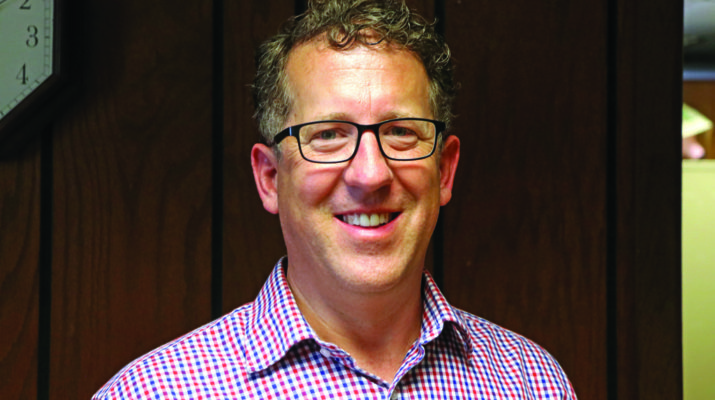Congressman Adrian Smith recently visited the Alliance Times-Herald to provide an update about Congress and what he intends to focus on in the session ahead.
Smith explained that he has heard a lot of concern from his constituents regarding President Joe Biden’s 30X30 plan to protect 30 percent of the United States’ land and water by 2030.
“The 30X30 situation, especially when you have concerns about the tax policy, and family agriculture operations not being able to foot the tax bill, then the federal government having this priority of controlling 30 percent of the nation’s land and 30 percent of the nation’s water, I find that very problematic. I think there have been extreme abuses of government power over the land that they might own, or strings attached, so that there would be leverage in the name of conservation that the federal government would have over someone who signed up for something.
“When you look at the Green New Deal, for example, the goals of the Green New Deal, many of which are included in the infrastructure plan that the President is pushing and has already passed the House, not friendly to agriculture. Certainly not friendly to livestock agriculture. I find it to be rather arbitrary. The administration is trying to say what 30X30 is not, but they never really told us what it was, other than this arbitrary number of 30 and 30. The absence of details is very concerning to a lot of us.”
Smith said another major issue he hopes to address is the tax proposal. He explained he is worried about the impact of the plan if it passes.
“We’re very concerned about this tax proposal,” Smith said. “It goes beyond family businesses, too. Even Barack Obama, when he was President, realized that we needed to be more competitive, especially with our corporate tax code. We weren’t going to offer corporate tax relief without offering it to individuals as well. That’s why it was a comprehensive approach that was great for economy in 2017. Obviously, we didn’t anticipate a pandemic. Right now is the absolute worst time, not that I would be anxious to support tax increases in any period, the fact that this huge tax increase is being proposed right now likely puts us, if it would pass, which I don’t think it will, it would put us in a worse situation than before the 2017 tax reform.”
Smith said he believes President Biden is moving further to the left in his approach, which he believes puts the economy and jobs at risk.
“We have a workforce shortage that I’m not sure the President is real concerned about,” said Smith. “We can and need to get folks back into the workforce for the sake of our country as a whole, not to mention our economy. The unemployment enhancement that the Governor (Pete Ricketts) has already set aside, that’s a good first step. The President has said he won’t work to extend that, but I’ll believe that when I see it. That’s the only indicator to my knowledge, that the President would understand that we’ve got workforce shortages.
“It’s very disruptive to supply chains, whether that’s the automobile industry, manufacturing, RVs, home building,” said Smith. “The lumber costs are a multifaceted problem there, but nonetheless a problem, indeed. It ultimately boils down to hurting consumers. It’s just the consumer who wanted to build a new house, utilizing new lumber, it’s the other consumer who would have bought the house that someone moved out of, as an example. Ultimately, it’s the consumers who get kicked the hardest with inflation. It’s going to hit low income folks the most.”
Smith explained he has seen concerns on both sides of the aisle about the tax proposal, which is why he is not sure if the proposal would pass.
“As usual, I spend most of my time fighting the bad stuff, which is part of the process,” Smith said. “I do want to continue to advocate on telehealth measures and rural development as a whole. Let’s leave some of these resources in rural America to begin with, instead of DC extracting a bunch of money out of family agriculture operations to send to Washington, then folks in rural America, if they write a really good grant, they’ll get some of that money back. That’s not how I prefer to view things, and that’s why we’ve got the Rural Development program that has the capacity to do some good things, but we should leave resources in rural America to begin with.”
He explained something he hopes to address is the expansion of telehealth capabilities. Smith noted he recently visited the Hemingford Clinic, which inspired him to push for more telehealth options.
“It was great to visit the new clinic in Hemingford,” said Smith. “We talked about telehealth there, so I’m continuing to work on telehealth. That’s an issue I was working on even before COVID hit, for rural purposes. We’ve since found out there are more reasons to have telehealth than just rural access.”

